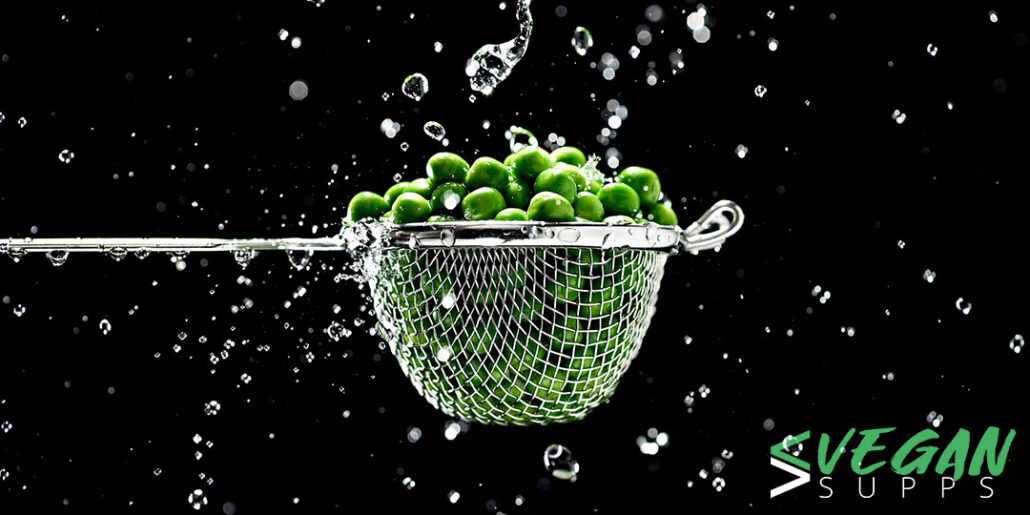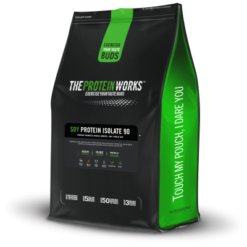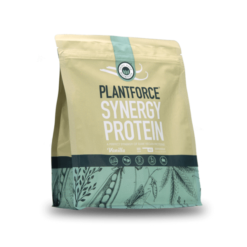Blog
Everything you need to know about protein
No doubt you have heard and read the word protein several times. But do you know what it really is and what it means to you? Chances are your answers are both a 'no', or at least one of the two. But don't worry: we are here to explain the most important information to you, so that after reading this blog, you will be a true protein-pro are 💪.
What is protein and why is it important?
Probably the most important questions you need to answer ared really need to know. Protein is a synonym for protein, meaning a nutrient. There are two types of protein: plant and animal. Plant proteins are mainly found in cereal products, nuts, legumes, bread and soya. Animal proteins are mainly found in meat, fish and dairy. What else is useful to know: lean products often contain more protein.
There are also different types of proteins: high-quality and low-quality. High-quality proteins are proteins with a high-quality protein content that is well absorbed by the body.
Protein is very important. This is because it is good for skin and hair, it provides amino acids for a number of the body's chemical processes, it helps it build and muscle recovery, and diffusing oxygen throughout the body.
Amino acids?
Above, the word 'amino acids' had been mentioned. It is also important to know what this is. Amino acids are like building blocks for the protein in your body cells. There are certain amino acids that the body can make itself, but others we have to get through our diet. These amino acids are called essential amino acids.
As long as you eat a balanced and varied diet, you will get a good amino acid mix, regardless of your lifestyle, age, etc. The only amino acid vegans need to watch carefully may be lysine. But if you eat lysine-rich products such as tofu, beans, lentils, peanuts, then you don't need to worry about that either.
How much protein do I need?
On average, people need 0.8 grams of protein per kilogram of body weight daily. However, the amount you need daily also depends on your situation, age, circumstances, etc. It also varies from person to person: after all, some people have more muscle tissue and utilise more amino acids from protein in food than others.
There is a formula that helps you determine exactly how much protein your body needs. This formula is as follows: 0.8 to 2 g of protein x your body weight.
- 0.8 grams = people who do not exercise
- 1.0 g = recreational athletes
- 1.2 grams = vegetarians, strength athletes on maintenance and endurance athletes moderate training programme
- 1.6 grams = vegans and strength athletes muscle building phase
- 1.7 g = endurance athletes heavy and long training programmes
- 2.0 grams = athletes in growth
- Female athletes = 15% less than men (15 % less compared to above values)
One recommendation is to spread your protein intake over several meal times. Meals and snacks rich in protein ensure a satiated feeling for a longer period. In doing so, your muscles are fed with sufficient protein throughout the day.Vegans need more protein than others: about 20 to 30% more (about 15 grams per day extra for an adult). This is because plant proteins contain fewer essential amino acids than animal proteins. Also, vegans should take care to eat proteins from different sources because of the difference in essential amino acids.
And how do you know if you are getting enough amino acids? One easy way is to keep a food diary on a website or app that calculates nutritional values including amino acids.
And what if I exercise?
 Your body needs more protein for muscle growth and repairing your muscles after you have made an intense effort (such as exercising). So endurance and strength athletes need a bit more protein than others (and if you are a vegan athlete then you do indeed need quite a lot of protein). Endurance athletes need about 1.2-1.4 grams of protein per kilo of body weight daily, and for strength athletes it is about 1.7-1.8 grams per kilo of body weight. For intense sportsmen and athletes, who train more than 3 times a week for 1 to 2 hours or more, supplements can make it just a little bit more.
Your body needs more protein for muscle growth and repairing your muscles after you have made an intense effort (such as exercising). So endurance and strength athletes need a bit more protein than others (and if you are a vegan athlete then you do indeed need quite a lot of protein). Endurance athletes need about 1.2-1.4 grams of protein per kilo of body weight daily, and for strength athletes it is about 1.7-1.8 grams per kilo of body weight. For intense sportsmen and athletes, who train more than 3 times a week for 1 to 2 hours or more, supplements can make it just a little bit more.
Of course, this amount also depends on personal goals. For example, sporters who mainly want to increase muscle mass are advised to take a bit more protein. However, taking in this extra portion of protein often comes naturally, as these athletes eat more than the average person.
The most important time to take protein is within 30 minutes of exercise. Your muscles need protein to fully recover and play an important role in building muscle mass. Recommended to opt for supplements, shakes etc: as long as they are easily and quickly absorbed into the body.
Taking in more protein does not lead to more muscle growth, contrary to what some people think. Excess protein serves as fuel or is stored in the form of fat. Beware of this as it can cause an unwanted increase in body weight. After all, you already get enough protein from normal foods.
Why supplements?
Above you have been able to read what protein is, why it is important, and that vegetarians, vegans and athletes need more protein than others. It is convenient for these people to take supplements to get their daily dose of protein, and this is easily done through the protein products we offer. Even for people who don't fall into the vegetarian, vegan or athlete category: you can still use our products, of course. Find out more about how much protein contained in our products and the intake per product can be found on our product pages. So take a look at our webshop!




